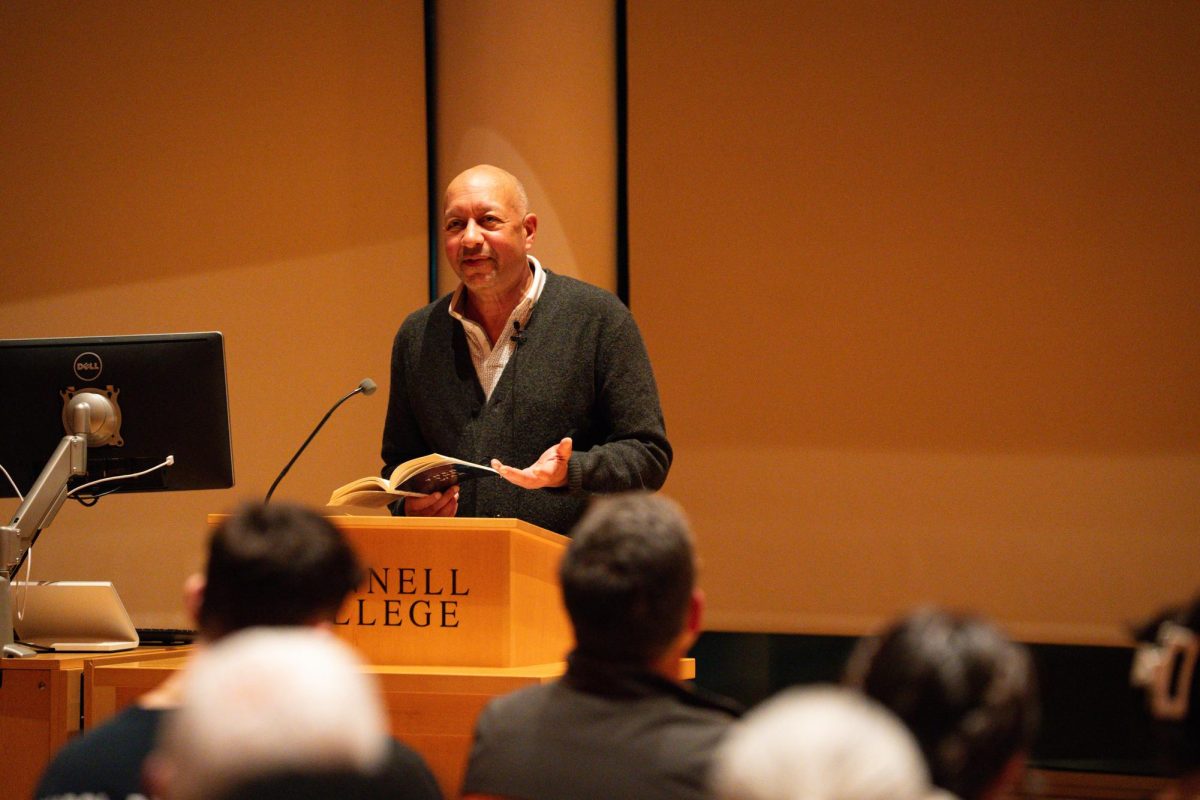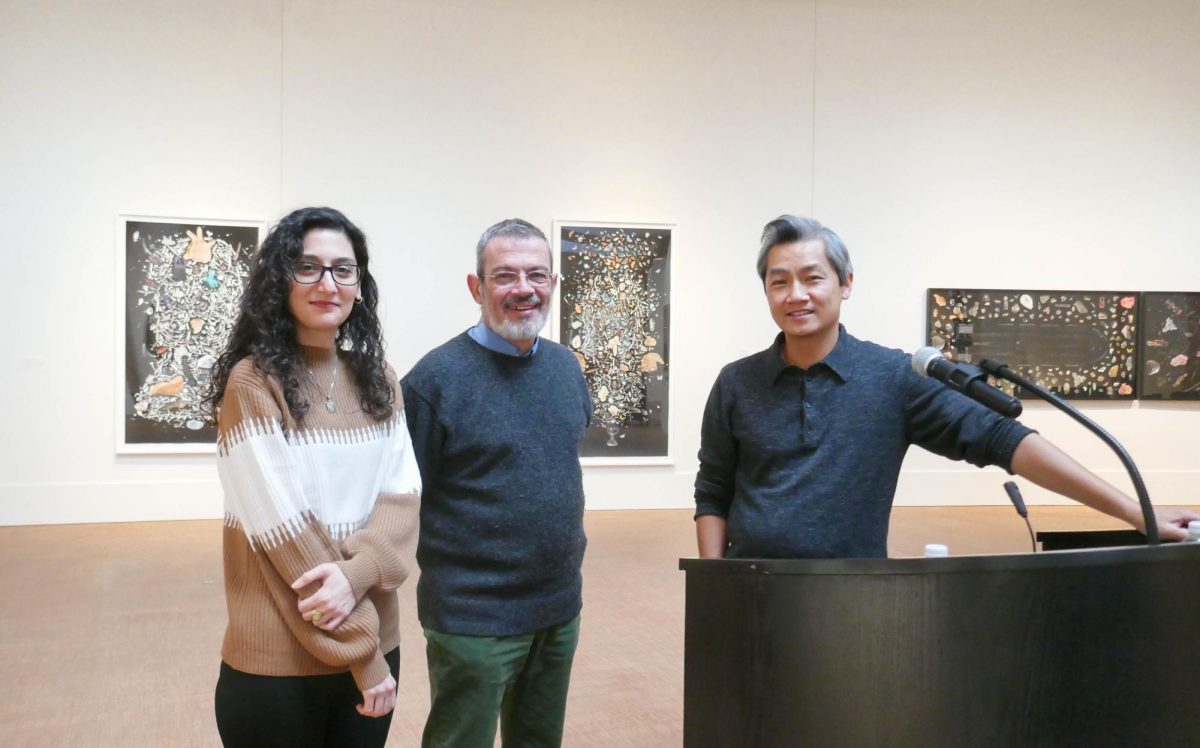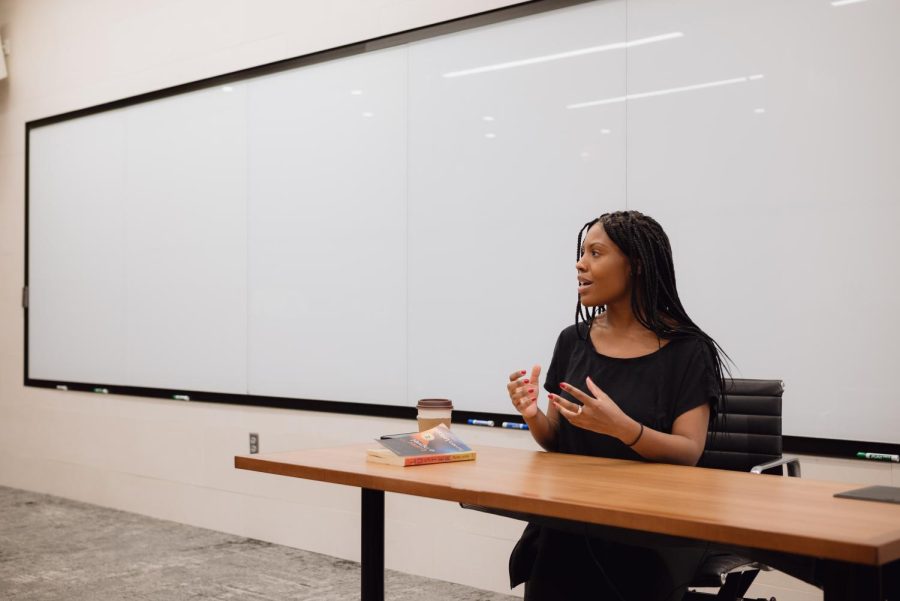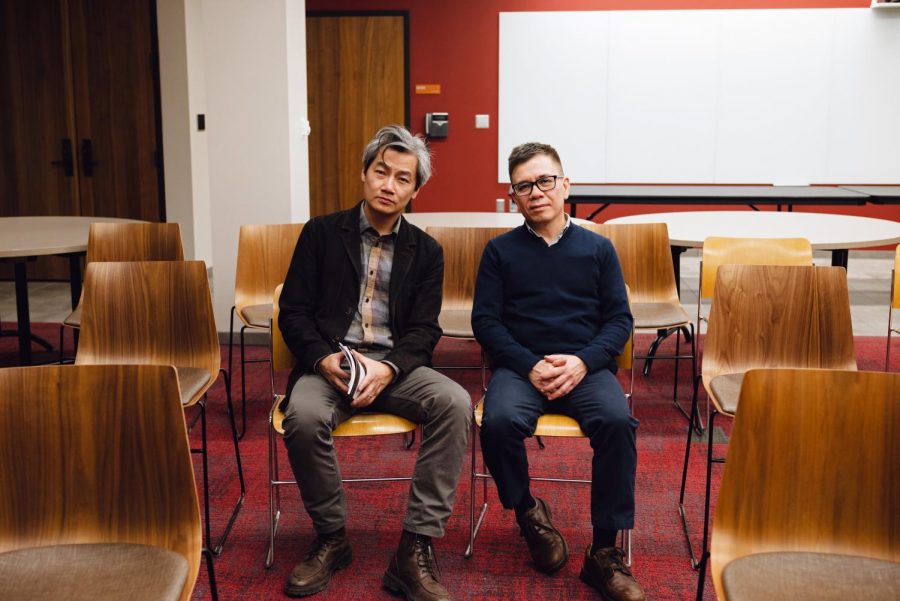By Mayo Sueta
suetamay@grinnell.edu
Last Friday, March 2, Writers@Grinnell welcomed author Douglas Trevor to campus to read from his newest book, “The Book of Wonders,” and answer questions about writing.
According to his website, Trevor’s novel “Girls I Know” won the 2013 Balcones Fiction Prize and his short story collection “The Thin Tear in the Fabric of Space” won the 2005 Iowa Short Fiction Award. He was also a finalist for the 2006 Hemingway Foundation/PEN Award for First Fiction. He has been published in The Iowa Review, New Letters and the Michigan Quarterly Review, among others.
Professor Dean Bakopoulos, English, introduced Trevor at the lunch as an “accomplished writer” who is “known around the literary community as an incredibly nice and helpful guy.”
Trevor first talked about his newest short story collection, “The Book of Wonders.” Each student at the event received a free, signed copy.
“I kind of wanted to step back from the process of … working in the form of a longer narrative because I wanted to find a different voice for this book I was trying to write,” Trevor said.
As Trevor worked on some of the short stories in the collection, he found a similarity between the themes.
“I [was] working on these two stories that seemed utterly entirely different, and [I realized] that, actually, they’re connected … because they’re both thinking about the relationships that we have to books, and the relationship we have to learning and the relationship we have through books with other people,” Trevor said. “I was sort of interested in that experience and I started to think … I’m going to do a collection of stories and they’re all having something to do with failed relationships to one degree or another and some kind of investment in storytelling or some kind of relationship that people have with books.”
After reading from “Book of Wonders,” Trevor answered questions that students had about writing. One student asked advice on how to cut down stories and get used to getting rid of sentences that may not be necessary for a piece. To this, Trevor answered that it may not be the worst thing to have to cut stories down.
“It’s really hard because … we use the word revision but a lot of the time, we just use the word cut … because a lot of the time … what we do when we’re revising is, we take things out,” Trevor said. “So you might be the kind of writer whose early drafts of a ten page story is 30 pages long. And you just have to learn how to reduce, but it might be advantageous for you … to inhabit that and not feel like you need to short circuit that and try to leave things out before you know if you need them or not. It’s always better to have to cut something than to finish a story and feel like the story is empty in some way.”
Trevor added that the process of writing does not have to be linear.
“Write the part of the story that you’re most interested in first. … Inhabit that part and see what happens there.”


























































